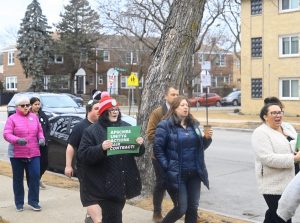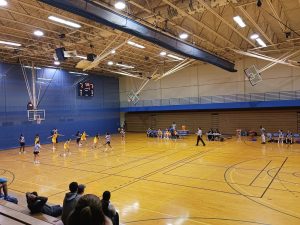Amendment 49, Unclear and Poorly Defined
October 31, 2012
On November 6, voters of the State of Illinois will be asked to vote on HJRCA49 (House Joint Resolution Constitutional Amendment 49) an amendment to the Illinois Constitution. Few voters know anything about this amendment, though the state has sent a brochure regarding the amendment to Illinois residents.
The decision by legislators to add this amendment to the November 6 ballot was sped through the legislative process with little time for discussion or input from affected groups.
Adding this amendment to the ballot has already cost several million dollars and, if passed, that amount will certainly increase due to challenges that will most likely be filed by various groups who oppose this amendment. These include The American Federation of State, County, and Municipal Employees (AFSCME), the State Universities Annuitants Association (SUAA), Illinois Federation of Teachers (IFT), the American Federation of Labor and Congress of Industrial Organizations (AFL-CIO), Chicago Fraternal Order of Police (FOP), Retired Teachers of Chicago, Laborers’ Midwest, McLean
County, and the Illinois Education Association (IEA), according to the article in the Journal-Standard by Rep. Jim Sacia, “At the Capitol: A look at HJRC Amendment 49.”
The proposed amendment to add section 5.1 to Article XIII of the Illinois Constitution would require a three-fifths majority vote to approve any pension or retirement benefits increase for public employees and officials. This amendment will affect fire departments, local and state police, libraries, local government employees, local school employees, and community college and public university employees.
On the surface, this may seem to be a start in solving the pension crisis the State has found itself in. One may think that the only people hurt by this amendment are those receiving or expecting to receive public pensions. However, there may be unforeseen consequences if this amendment passes causing serious issues. The State of Illinois could become less competitive in attracting and retaining highly qualified people to public sector jobs due to uncertainty regarding pension benefits.
It has been suggested that the wording of this amendment is confusing and if passed will more than likely face challenges in court which will be costly for all sides. No one seems to understand or agree on what some of the terms in the amendment actually mean. Terms such as “governing body”, “emolument benefit”, and “beneficial determination” will be argued about and the courts will be called upon to figure this all out.
According to Ann Lousin, Professor of Law at John Marshall Law School, “The Amendment is very long and includes a number of new concepts and terms which have not been interpreted by anyone.” If this amendment is passed it could be used as a precedent for curtailing other collective bargaining issues.
This amendment does nothing to address the State’s financial crisis and does not result in savings to taxpayers. It would grant unprecedented power to state and local governmental bodies to make changes to pension benefits and existing law and gives more monetary power to the state legislators who have failed for years to be fiscally responsible.
The pension problems of Illinois must be solved, but not by a constitutional amendment that has unclear language, unknown impacts and new mandates for all governmental bodies in Illinois.
Alice Medenwald is the President of the NEIU Chapter of the State Universities Annuitants Association (SUAA). SUAA advocates for pension benefits of retirees and current employees of Illinois Public Universities and Illinois Community Colleges.







